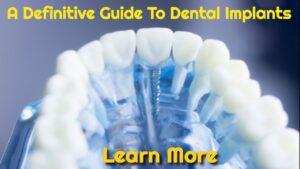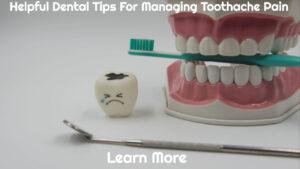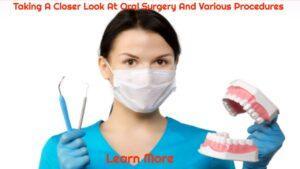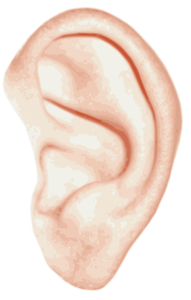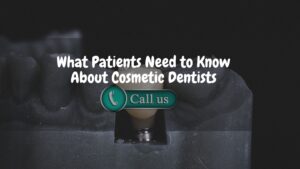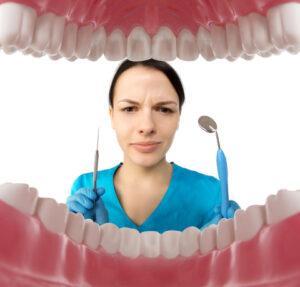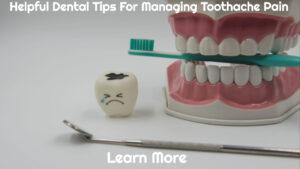Your cart is currently empty!
Category: Health & Wellness
-
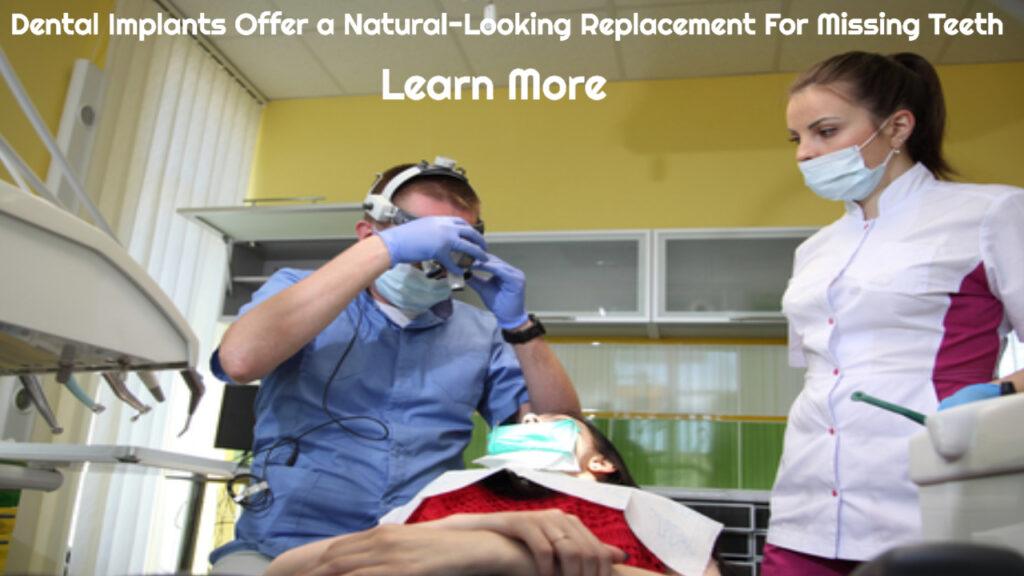
Dental Implants – A Natural-Looking Replacement For Missing Teeth
Dental Implants – Solution for Replacing Missing Teeth
People lose teeth as a result of trauma, gum disease, and decay. When a person has a missing tooth in the front of their grin, they frequently feel self-conscious about their look. Missing teeth also make it more difficult to chew certain foods and even talk clearly. Dental implants are a semi-permanent solution for replacing missing teeth that seem natural.
What Is a Dental Implant?
When someone plans treatment for dental implants, they want to be sure they completely understand the process. Dental implants are used to replace lost teeth in any part of the mouth. To perfect their smiles, some patients require many dental implants.
A dental implant is an artificial tooth root that is inserted into the jawbone. The dental implant is made of titanium, which is the only metal known to bind with human bone tissue. When the implant is placed in the jawbone by the dentist, bone tissue forms around it. It may take several months for the implant to become a permanent part of the individual’s jawbone. Titanium implants are as strong as natural tooth roots.
What Is Involved in the Procedure For Placing Dental Implants?
Many people are unaware of what a dental implant process entails. It is critical to recognise that acquiring dental implants is a multi-step procedure. A person must be patient during the process and understand that they will need to visit the dentist several times.
Dental implant operations are often performed under a local anaesthetic by implant dentists. To expose the bone, the dentist will first make an incision in the gum tissue. The dentist will next drill a hole in the jawbone to insert the implant. Once the implant is in place, the dentist sutures the gum shut so that the bone can begin to mend.
Healing takes a few months because bone tissue must form around the implant to securely hold it in place. Following the completion of bonding, the patient will be returned to the dentist for abutment installation. The titanium implant is joined to the dental crown by abutments.
A small in-office surgical technique is used to reopen the gum tissue. The abutment is then attached to the titanium post by the dentist. Finally, the implant dentist will close the gum tissue around the abutment but will not completely cover it. This stage of the process takes around two weeks to heal. Some dentists will provide their patients with a temporary crown for their convenience.
The porcelain crown is then fitted as the following stage in having a dental implant. The only part of the dental implant that will be visible above the gum tissue is the crown. Because the porcelain crown is fitted to match the patient’s surrounding teeth, the result is natural-looking.
What Are the Different Kinds of Dental Implants?
Dental implants are classified into two categories. Endosteal implants are the most common form, and titanium is the most commonly utilised material. Titanium is the metal of choice because it is rarely rejected by the human body and does not irritate it.
Subperiosteal implants are an option for those with insufficient bone mass. This implant is implanted behind the gum line and above the jawbone. This implant is similar to endosteal implants, however, it never penetrates the jawbone.
Who Is a Good Candidate for Dental Implants?
A consultation with a dentist is required before a person can receive a dental implant. The dentist will examine the patient to ensure that he or she is in good overall health and does not have gum disease or decay. Before inserting a dental implant, the dentist would need to resolve these issues.
Individuals interested in dental implants should also have sufficient bone tissue in the socket where the implant will be placed. Those with insufficient bone may require a bone graft. Patients should also refrain from smoking prior to and during their surgery.
What Are the Advantages of Getting Dental Implants?
Dental implants offer a semi-permanent solution for those looking to restore missing teeth. Dentists utilise implants to replace in the gaps left by missing teeth, regardless of the reason for their loss. The following are some of the most important advantages of dental implants.
Dental implants are designed to be long-lasting and permanent if properly cared for. As long as no trauma occurs, only the crown needs to be replaced.
Dentures and other tooth replacement solutions require more maintenance than dental implants.
Dentists utilise dental implants to replace a single tooth or several teeth, as well as to secure a denture plate.
The integrity of the neighbouring teeth is preserved with a dental implant.
Dental implants also help to preserve the patient’s facial features by preventing bone loss in the jawbone.
Request a ConsultationThe first step in acquiring dental implants is to schedule a consultation session. Depending on the patient’s age and health, the complete treatment can take up to five or six months from start to completion. When a person’s grin is perfected, the process takes time but is well worth the effort.
Brought To You By: https://www.simplysmilesdds.com/
The post Dental Implants – A Natural-Looking Replacement For Missing Teeth appeared first on https://arquiaca.org
The post Dental Implants – A Natural-Looking Replacement For Missing Teeth appeared first on https://wookicentral.com
The post Dental Implants – A Natural-Looking Replacement For Missing Teeth appeared first on https://gqcentral.co.uk
-
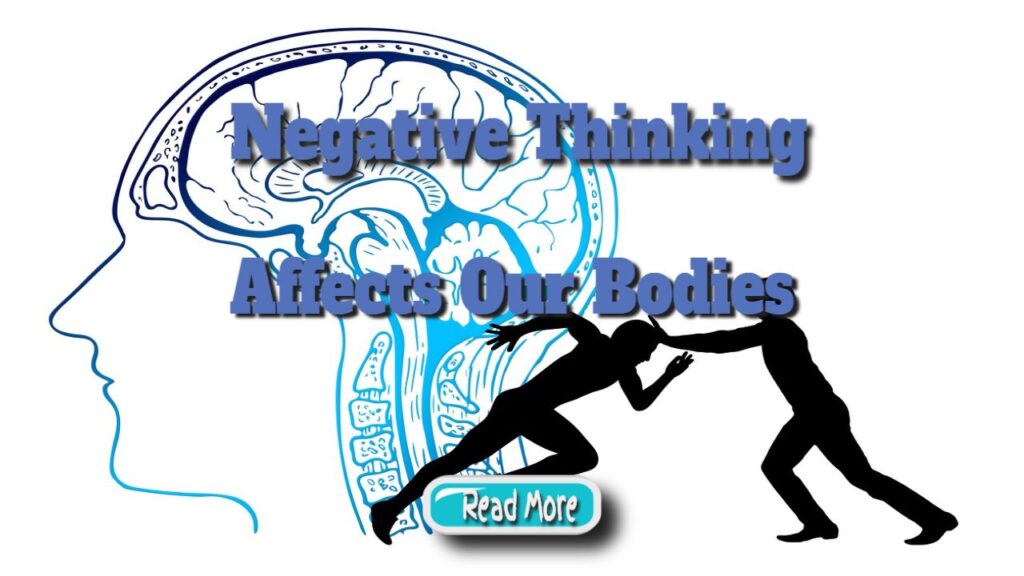
How Negative Thinking Affects Our Bodies and What We Can Do
How Negative Thinking Affects Our Bodies and What We Can Do
How Negative Thinking Affects Our Bodies and What We Can Do: Do you ever find yourself pondering the past or fretting about the future? If that’s the case, you’re not alone. According to experts at the University of New South Wales, up to 70% of adults regularly think negatively. Unfortunately, the negative thinking we indulge in has a significant impact on our mental health.
We are all aware that negative thinking is harmful to our health. But how does it affect us specifically? And how can we begin to combat it? Continue reading to find out.
We feel bad when we think negatively.
Negative thinking can make us feel bad because it causes stress hormones like cortisol to be released.
These hormones are intended to aid our survival by enhancing attentiveness and focus. However, when we are constantly stressed, it can lead to significant health concerns such as anxiety disorders, depression, heart disease, diabetes, high blood pressure, and even cancer.
The idea is to teach your brain not to spend time thinking about things that make you unhappy.
One approach is cognitive behavioural therapy (CBT).
CBT assists patients in developing methods to change their negative thought habits. It should become simpler to refocus on more positive thoughts with practice and time.
Negative thinking causes bodily discomfort.
Negative thinking can cause physical discomfort. Even if we are unaware of it, the mental stress caused by negative thoughts can result in various physical symptoms such as headaches and muscle stiffness.
Negative thinking has a significant impact on our mental health. According to research, we are more likely to be irritated and worried when we have a negative perspective.
Negative thinking is also linked to depression, which leads us back to physical discomfort. Depression is frequently accompanied by chronic pain, which returns us to the psychological stress that began this vicious cycle in the first place!
The good news is that if you know what you’re up against, there are solutions to break the pattern.
The most effective technique to overcome negative ideas is to replace them with positive ones.
According to one study, persons who practise thankfulness are less likely to be depressed at the end of the day than those who do not – appreciation makes them feel better about their life.
It makes them less likely to ruminate about adverse events throughout the day.
While negative thinking may appear unavoidable at times, there are strategies to overcome it and keep your mind healthy.
We become ill as a result of negative thinking.
Negative thinking can harm our health in a variety of ways.
For starters, it can cause stress, which has been found to negatively influence our immune system and make us more susceptible to seasonal flu.
It has also been demonstrated that negative thinking can make us unwell by increasing cortisol levels, the stress hormone.
Cortisol is critical for our long-term health, but when we are chronically stressed, our systems produce an excess of cortisol. This disrupts the balance of other hormones in our brain and body required for nutritional health.
Negative thinking has an even more negative impact on our bodies.
Negative thinking harms our mental health, but it also harms our physical health.
The stress hormones created when we think negative thoughts might even influence how our immune system operates, making us more vulnerable to disease.
Chronic stress causes the body’s fight-or-flight response, delaying and weakening the immune system.
Chronic stress lowers the immune system and hinders sleep, and leads to overeating or skipping meals entirely.
Negative thoughts can also cause an increase in blood pressure and heart rate, both of which make you more vulnerable to strokes and heart attacks.
How to Get Rid of Negativity and Begin Thinking Positively
Many people struggle with negative thinking. We worry about the past and the future, and we become so caught up in ourselves that we never take care of ourselves.
The good news is that there are methods for dealing with negativity and thinking more positively.
The first step is to detect your negative thoughts and determine their source. Perhaps you believe your boss despises you or that everyone thinks you’re foolish. However, if you consider the situation that generated that sensation, it may not be as horrible as you believe.
Maybe your employer was having a terrible day, and one person felt you were stupid while others thought you were fantastic – keep that in mind the next time you get a similar reaction.
The next stage is to determine why these negative ideas arise in the first place. Perhaps it dates back to your youth, and perhaps it has nothing to do with your current situation. You can either concentrate on what makes you joyful or use mindfulness techniques to hold these feelings at bay until they go away on their own.
The post How Negative Thinking Affects Our Bodies and What We Can Do appeared first on https://gqcentral.co.uk
-

Frequently Asked Questions About Endodontists
Endodontists – Solution for an Infected Tooth
Some patients are unsure what to anticipate from their first visit to an endodontist and are concerned about the experience. These are some frequently asked questions about endodontic treatments.
What is an Endodontist?
Endodontists are dental specialists who have acquired considerable training in difficult and sensitive dental operations. They are more highly trained than ordinary dentists, having completed two years of advanced education after graduating from dental school. They have a Master of Dentistry degree and have completed an extended residency in endodontics. When there are moderate to severe dental health concerns, patients are frequently referred to an endodontist for care.
What Is the Role of an Endodontist?
Endodontists usually concentrate on the pulp of the tooth. The pulp is found in the inner section of the tooth. It houses the teeth’s nerves, blood vessels, and other soft tissues. While most dentists can treat minor cavities and decay, infections can damage the hard enamel and spread deeper into the soft tissues. As a result, it may begin to infiltrate nearby places. This deterioration can cause discomfort by affecting the root and pulp. Endodontists employ sophisticated procedures to remove contaminated tissue, treat sick teeth, and heal the affected area.
Who Should See an Endodontist?
People frequently seek the assistance of an endodontist to cure deep infections, which can be more difficult to manage. Endodontists can also treat teeth that require many rounds of treatment, identify inexplicable tooth discomfort, and manage dental damage. Although a dentist can help with some of these disorders, an endodontist has more specialised training and experience treating the difficulties effectively. Furthermore, root canals are a common procedure performed by endodontists.
What Can You Expect From an Endodontist Visit?
Early in the visit, a member of the dental staff will ask you to fill out an intake form in order to determine why you are seeing the endodontist. The doctor will then go over any X-rays or lab work that your dentist has already done. Following that, you will be tested. Following that, you will collaborate with your endodontist to devise a treatment plan tailored to your specific needs. This is an excellent moment to address financial concerns, concerns regarding pain management, and recuperation periods. Your endodontist is there to help you heal as soon and completely as possible so that you may get back to living your life without pain.
Endodontists treat what?
Although endodontists treat a wide range of diseases, the most common surgery is a root canal. Endodontists are sometimes referred to as root canal specialists since they spend a significant amount of time performing procedures. They can, however, do additional oral treatments such as infection removal, emergency dental work, tooth extraction, and implant dentistry.
What exactly is a root canal?
A root canal is a procedure in which an endodontist removes all of the diseased tissue within a tooth. When the pulp of a tooth is inflamed due to infection, it can cause significant discomfort. That discomfort might be relieved by removing the dead and diseased tissue within the tooth. Furthermore, removing the germs minimises the possibility of it spreading to neighbouring teeth. The endodontist will repair the tooth with a filling after treating the infection.
How is a Root Canal Performed?
A thorough evaluation by your provider is the first step in a root canal operation. A physical exam, X-rays, hot/cold tests, and blood work are some of the procedures that may be performed.
When it is determined that a root canal is necessary, you will be scheduled for the treatment.
Pain management is a top goal on root canal day. First, the endodontist may administer a small sedative to keep you calm during the treatment. The area around the problematic tooth will then be numbed by your endodontist. The process can begin after you are entirely numb.
Many things can be placed in or near the mouth by the endodontist. To begin, they will apply a clean dressing to keep the infection contained. Lights, water, and suction will also be used to help with the operation. The endodontist will then use a small dental drill to penetrate the pulp of the tooth and clear any infection or damaged tissue. Some patients prefer to listen to music while the treatment is being performed.
The endodontist will place a filling after cleaning and treating the tooth. They will then cement the tooth to prevent infection in the future.
A section of your mouth may remain numb for the rest of the day. It is critical to eat soft foods to avoid biting your cheek or tongue until you restore sensation. Some people may require over-the-counter pain relievers for two to three days after the treatment.
Is it painful to get a root canal?
A root canal procedure should not be uncomfortable. Although some patients report feeling pressure during the operation, you should notify your provider if you experience any pain. It is critical that you are not in pain while in the office and that you can handle any pain once you return home to recover.
An endodontist’s knowledge is a vital asset to your dental health team. Make sure to ask your physician any additional questions you may have about your forthcoming visits.
Brought To You By: https://www.starbritedentalrockville.com/root-canal-rockville-md
The post Frequently Asked Questions About Endodontists appeared first on https://arquiaca.org
The post Frequently Asked Questions About Endodontists appeared first on https://wookicentral.com
The post Frequently Asked Questions About Endodontists appeared first on https://gqcentral.co.uk
-

3 Reasons You Should See A Therapist In Santa Monica
3 Reasons You Should See A Therapist In Santa Monica
Are you thinking about seeing a therapist? Do you want to enhance your life and relationships but don’t believe you need to consult a psychologist? We want to help you understand the top three reasons why you should consult a therapist.
It was anticipated in 2020 that over 41.4 million adults in the United States had mental health treatment or counselling at some point during the preceding year.
Even more astounding, one in every six U.S. children aged 2–8 years (17.4 per cent) had a diagnosed mental, behavioural, or developmental condition, implying that therapy could be useful for all age groups, regardless of whether you have it diagnosed or not.
Continue reading to learn the top three reasons to consult a therapist regardless of your problems.
3 Reasons to Consult a Therapist
Many people would agree that investing in your health is one of the most important things you can do to live a healthy, productive life. Seeing a therapist is an excellent approach to accomplish this!
A therapist can assist you in identifying and addressing some of your emotions or anxieties, which will result in long-term benefits such as peace of mind and clarity when confronted with difficult situations.
Addiction
Substance misuse, whether it’s alcohol, nicotine, or opioids, is frequently utilised to deal with an unresolved issue. The same is true for addictive behaviours such as gambling, binge eating, and purging.
A psychologist can help with both the problematic behaviour and the underlying issue, which could be stress, depression, or childhood traumas.
Therapists can also assist family and friends who are dealing with the addiction of a loved one. Individual and group therapy can help family members and caregivers understand how to better support their loved one’s rehabilitation while also managing their own emotions.
Depression
Depression is one of the most common medical problems in the United States, affecting people of all ages, genders, and races. According to the National Institute of Mental Health (NIMH)Trusted Source, 17.3 million people in the United States experienced at least one episode of severe depression in 2017.
It is tough to function on a daily basis when you are depressed. It has the potential to affect your career, relationships, sleep, energy, and appetite. It frequently leads to feelings of hopelessness, helplessness, and guilt.
Therapy can help you identify the source of your depression and manage your symptoms, which can provide relief.
Stress and anxiety
It’s normal to be anxious about specific situations, such as a performance review, a first date, or a school presentation. A therapist will work with you to identify stressors in your life and will help you create effective coping strategies.
It’s also a good idea to seek help if you’re struggling with day-to-day stress and anxiety. Excessive stress and anxiety can lead to a variety of diseases, including sleep difficulties, hazardous behaviours, and depression. While anxiety will never go away completely, you can learn to manage its symptoms.
Why You Should See A Therapist
With all of life’s issues, you may be finding it tough to manage your numerous responsibilities. You might be feeling overwhelmed and finding it difficult to regulate and arrange all of your emotions. And it’s possible that you’re not dealing with them in the most effective ways—a therapist can help you understand your emotions and teach you how to deal with them.
Therapy can help with a variety of mental health issues. In therapy, people can learn to manage symptoms that may not respond promptly to treatment. According to studies, the advantages of treatment outlast the effects of medicine alone.
Medication can assist with specific symptoms of mental health problems, but treatment teaches people how to deal with many of them without the need for medication or a trip to the doctor.
These talents last long after treatment is completed, and symptoms may improve more with ongoing contact with the therapist.
Individual Counseling
Individual psychotherapy is frequently regarded as a type of counselling or talk therapy. It is used to treat a wide range of conditions, including depression, anxiety, interpersonal troubles, and addiction. Individual therapy requires you to meet with your therapist on a regular basis to discuss your difficulties. Your therapist may be able to provide insights into why you feel the way you do, as well as ideas for changing unfavourable habits of thought or behaviour to reduce your suffering.
Individual therapy’s key value is that it provides you with access to an objective outside view of your difficulties and how to effectively handle them. This is especially useful if you are having difficulty making sense of your feelings and thoughts, which is common when struggling with depression or other mental health concerns.
Couples Counseling
There is going to be hurt sentiments and stress when we dispute with our partners. However, couple’s therapy is an option for everyone experiencing difficulties in their relationship; it is especially beneficial for individuals who have never participated in couple’s therapy before.
It may be advantageous if you and your partner both want to save your relationship and are prepared to put out the effort. Brooke Sprawl, a therapist in Santa Monica, suggests another reason why so many couples fail to stay together:
They don’t include treatment in their routine, whether they live together as a married pair or not.
Family Counseling
It is critical to recognise that family troubles do not exist in a vacuum. If something isn’t working in your marriage or with your children, consulting a family therapist may be the best approach to begin unravelling the secrets behind sudden behaviour changes or mood swings.
Family therapy can help you whether you’re seeking for someone to help you manage disagreements or you’re dealing with deep-seated issues with loved ones. Couples and family therapists work to improve communication skills and develop relationships between members of groups.
Many therapists specialise in working with children, teenagers, and elders within families, especially if those age groups are experiencing difficulties. This can range from eating problems and attention deficit hyperactivity disorder to post-traumatic stress disorder (PTSD).
Conclusions
Since Freud’s first office opened in 1885, therapy has come a long way. Many therapists today feel that no single theory is superior when it comes to treating clients, so there is nothing stopping you from calling a local therapist and setting up an appointment for yourself or your family.
If you want to improve your communication with your relationship or deal with childhood trauma, counselling may be for you.
Take some time to look into therapists and services in Santa Monica near you to start the process of changing your life for the better for you and your family.
127 Broadway, Santa Monica, CA 90401, United States
+1 310-896-5568
The post 3 Reasons You Should See A Therapist In Santa Monica appeared first on https://soonrs.com
The post 3 Reasons You Should See A Therapist In Santa Monica appeared first on https://wookicentral.com
The post 3 Reasons You Should See A Therapist In Santa Monica appeared first on https://gqcentral.co.uk
-

Does Tretinoin Cream Work for Acne Treatment?
Does Tretinoin Work for Acne?
The acne drug Retin-A is a generic version of topical tretinoin. In the United States, topical tretinoin is only available with a prescription. Adapalene is the only retinoid drug available over the counter (Differin).
In most circumstances, topical tretinoin is utilised to treat active breakouts as both a short-term and long-term therapeutic option. It is used to treat difficult-to-remove acne blemishes.
Tretinoin is effective for many people, however, it is not effective for everyone. Continue reading to find out more about tretinoin and what you should be aware of before using it to treat acne.
The advantages of using tretinoin to treat acne
Tretinoin is a retinoid, which means it is derived from vitamin A. Retinoids promote cell turnover in your skin. Dead skin cells are cleared away more quickly as fresh skin cells rise to the surface.
Faster cell turnover helps to unclog your pores, allowing germs and irritants that cause acne to leave.
Retinoids, such as tretinoin, can enhance your skin’s natural oil production (sebum), which might help you avoid future breakouts. They also have anti-inflammatory properties, which aid in the removal of violent acne pustules.
Tretinoin is used to treat wrinkles.
Tretinoin’s influence on the visible signs of ageing has been extensively studied.
Tretinoin cream has been demonstrated to minimise wrinkle appearance in the short and long term. As a result, tretinoin is widely used in over-the-counter face and eye products.
Tretinoin is used to treat acne scars.
Tretinoin can also be used to minimise the look of acne scars. Tretinoin, by increasing cell turnover on your skin, can encourage new cell formation at the location of scarring.
Tretinoin has been shown to be an effective treatment for many types of acne scars. Tretinoin is also sometimes used to prepare the skin for chemical peels for scar removal.
Tretinoin side effects
Tretinoin can have negative side effects when used to treat acne. Some side effects may be more severe than others, and not everyone will experience all of them. The following are some instances of potential undesirable consequences:
skin that is hot or irritating skin that is unusually dry skin that feels warm to the touch skin that turns a lighter colour at the application place peeling or redness on your skin
Tretinoin’s effects can take up to 12 weeks to manifest. If using it causes your skin to become inflamed, visit a doctor to see if your symptoms are within the normal range for over-the-counter tretinoin.
Tretinoin should not be used by pregnant or breastfeeding women.
When using tretinoin, you should avoid sun exposure at all costs. Tretinoin, like all retinoids, thins the skin and makes it more susceptible to UV damage and sunburn.
When going outside, use sunscreen and consider taking extra measures, such as wearing a hat with a brim.
If you suspect an allergic reaction to tretinoin or are experiencing serious side effects, discontinue use immediately and seek medical attention.
Interactions between medications
Other topical acne medications may interact with tretinoin, causing irritation or worsening side effects including skin burning.
Other topical skin treatments (such as benzoyl peroxide or salicylic acid, as well as sulfur-containing products) should be avoided while using tretinoin unless it is part of a treatment plan established with your doctor.
Also, avoid products that dry up your skin, such as astringents and cleansers containing alcohol.
How should tretinoin be used to treat acne?
Start with a cream or gel that has a modest amount of the active ingredient tretinoin if you want to use it to treat acne (0.025 percent). You can progressively increase the amount utilised as your skin becomes accustomed to the therapy.
Follow these procedures to use tretinoin safely and effectively:
Wash your face with warm water and blot it dry before using any topical acne medication. Wash your hands before applying any cream or lotion to your face. Wait a few minutes before applying the medication to ensure that your skin is completely dry.
To softly cover the affected area, apply a small amount of the drug. You do not need to apply the medication to your face in a thick layer. A dime-sized amount of the medication should be enough to cover your entire face.
With the tips of your fingers, spread the medication away from sensitive areas such as your eyes, nostrils, and mouth. Allow the cream or gel to sink entirely after lightly massaging it into your skin.
Apply tretinoin once at bedtime for best results, enabling it to completely penetrate your skin while you sleep. It’s best to avoid wearing makeup for the first few hours after this treatment.If your skin doesn’t improve after 8 to 12 weeks, talk to your doctor about prescription-strength tretinoin or other treatment options.
Conclusion
Tretinoin is a highly effective long-term acne treatment. While it may not work for everyone, studies show that by promoting cell turnover, it can help to level out skin tone, cure breakouts, and lessen the appearance of acne scarring.
Tretinoin may aggravate acne in the first few weeks of treatment, but you should see benefits after a few weeks.
The post Does Tretinoin Cream Work for Acne Treatment? appeared first on https://richcitations.org
The post Does Tretinoin Cream Work for Acne Treatment? appeared first on https://wookicentral.com
The post Does Tretinoin Cream Work for Acne Treatment? appeared first on https://gqcentral.co.uk
-

Developing A Support Network To Keep Healthy and Happy
Having relationships and meeting new friends are natural parts of life. It’s something everyone does. Having said that, some of us are better than others at it. If you’re having trouble creating supportive friends, it’s time to delve deeper into yourself to discover why. After all, the majority of our time is spent with our friends and family, and it is these interactions that shape who we are.
* Be a Friend in Order to Have a Friend.
It takes a lot of time and work to build helpful relationships. If you want others to be there for you when you need it, it is critical that you do the same for them. When it comes to friendships and supporting connections, the Golden Norm is a great rule to follow.
* Be Your True Self from the Start.
Differences are what make life interesting, so never strive to be someone you are not just to have particular friends or attract a certain person into your life. People rarely change, and you won’t be able to keep it up. The more you let people be themselves, the more they will let you be yourself.
* Accept Others for Whom They Are.
In contrast, it is critical to be accepting of other people’s differences. It does not imply that you must support criminal behaviour, but you must be willing to accept minor moral distinctions or superficial differences, such as skin colour or whether or not they want to get a tattoo.
* Refrain from Assuming Responsibility for Others.
There is a delicate line between providing assistance and enabling behaviour. When a friend is forced to bear the repercussions of their erroneous conduct, to be helpful, you do not have to accept responsibility for their actions. Even when visiting someone in jail, you may show your support.
* Have Faith in Your Friends to Be Better.
Part of being a good friend, and a supportive person is wanting more for them than they do for themselves. If you find one of your friends, for example, is in an abusive relationship, do not stand by and promote that idea. Demand that they obtain aid and leave the situation.
* Discover How to Listen Effectively.
For a reason, humans were given two ears and one mouth. Everyone should make an attempt to listen twice as much as they speak. However, there is a distinction to be made between simply sitting silently and actually listening. Until you get it correct, try repeating back to people what you think they said in your own words.
* True friendships are one hundred percent.
Because no one keeps score in a genuine friendship that provides support, they are 100/100 rather than 50/50. If you are determined to give your all, you will not be focused on resentments and misunderstandings.
* Spend Genuine Time with Your Friends.
When you cultivate a friendship and a genuine relationship with someone, it is the amount of time you spend with them that matters. The majority of folks do not require so much time. Sometimes it’s just 10 minutes on the phone, and other times it’s a coffee date. Another time, it may be the double chocolate chip ice cream and the movie Terms of Endearment, complete with a box of tissues.
* Learn to Accept (and Give) Criticism.
True supportive partnerships aren’t always perfect. Friends occasionally require someone to call them on their bluff. People who are truly supportive can do that for one other and allow it to be done for them.
* Request What You Require.
Some relationships can appear one-sided at times, which is why it is critical to understand how to set limits and request what you require. If you ask somebody for something and they don’t, can’t, or won’t give it to you, it may be time to move on.
*Look After Yourself.
Self-care has become a popular phrase, however, it should not be regarded as a fad; rather, it should be regarded as learning to be in touch with our physical and emotional requirements and providing timely care to our bodies is a healthy long-term objective to have. Some self-care is preventive (eating a healthy diet, exercising regularly, and getting adequate sleep), while others are reactive (getting additional rest while you’re unwell).
Sometimes, we need to look outside of ourselves and ask for help. Acupuncture has been used for thousands of years in the East to promote good health and well-being.
What role does acupuncture play? Acupuncture can be used to provide both preventive and reactive self-care. A weekly, bimonthly, or monthly acupuncture session is a healthy preventative form of self-care that many people find to be a healthy preventive technique of self-care that keeps them feeling more relaxed, better able to cope with stress, sleep more soundly, or experience less discomfort. Others are relieved when they can get an acupuncture treatment on short notice for a variety of reasons, such as stress reduction, weariness, a headache or migraine, acute pain, and so on.
Acupuncture can be combined with other self-care measures such as exercise, a warm bath, or a nap. When your body is screaming for help, acupuncture may be just what you’re looking for!
Creating true support systems takes time and effort, but it will pay off when you really need it. Setting the benchmark for what you anticipate in a relationship demonstrates to your friends and family the type of support network that you require.
This article has been brought to you by: Frome Acupuncture
The post Developing A Support Network To Keep Healthy and Happy appeared first on https://buydroppeddomains.com
The post Developing A Support Network To Keep Healthy and Happy appeared first on https://wookicentral.com
The post Developing A Support Network To Keep Healthy and Happy appeared first on https://gqcentral.co.uk
-

What Is the Progression of an Acoustic Neuroma
What Is the Progression of an Acoustic Neuroma?
An acoustic neuroma (also known as a vestibular schwannoma) is a benign (non-cancerous) tumour that arises from the balance and auditory nerves that supply the inner ear. It normally grows slowly and does not create any symptoms.
The tumour is caused by an overabundance of Schwann cells, which are cells that generally surround nerve fibres and nourish and insulate neurons during normal activity.
Because it puts pressure on the hearing and balance nerves, an acoustic neuroma causes unilateral hearing loss, tinnitus (ringing in the ears), dizziness, and balance issues.
As it expands, it may impinge on the facial nerve (trigeminal nerve), causing facial numbness and tingling. It can also put pressure on the nerves that control the facial muscles, causing weakness or paralysis of the muscles on the side of the tumour where the tumour is located.
Vital functions may be jeopardised when big tumours push excessively on the brainstem and cerebellum.
One in every 100,000 people will develop an auditory neuroma at some point in their lives. Unilateral auditory neuromas account for about 8% of all tumours found inside the skull.
Symptoms can appear at any age, but they are most common between the ages of 30 and 60. Acoustic neuromas that grow on only one side of the body are not hereditary.
How Is It Determined If It Exists?
Early detection of an acoustic neuroma can be difficult because symptoms in the early stages of the disease are frequently modest if present at all.
Many middle and inner ear illnesses have symptoms that are similar to one another, making diagnosis challenging.
To make a valid diagnosis, a complete ear examination and hearing test (audiogram) is essential as soon as symptoms appear.
The use of computed tomography (CT) scans supplemented with intravenous contrast and magnetic resonance imaging (MRI) pictures are required for the early detection of acoustic neuroma.
These tests are useful in determining the location and size of the tumour and planning its removal via microsurgery.
What Are the Procedures for Treatment?
Early identification of an acoustic neuroma is crucial for preventing possibly fatal consequences. Radiation, surgery, and observation are the three treatment options for this illness.
Typically, the tumour is removed surgically. The sort of surgery needed will be determined by the size of the tumour and the amount of hearing remaining in the affected ear.
If the tumour is small enough, it may be possible to keep hearing while also treating the underlying symptoms. However, when the tumour grows in size, surgical removal becomes more difficult since the tumour may have harmed the nerves that control facial gestures, hearing, balance, and other brain structures, making removal more difficult.
If the tumour has damaged these nerves, surgical excision of the tumour may worsen the person’s symptoms since nerve segments may need to be excised as part of the surgical operation.
Fortunately, vestibular rehabilitation can help the central nervous system compensate for the loss of inner ear function in these cases.
Living with a balance problem has a number of effects on one’s life. Many once simple tasks have become difficult, if not impossible, to complete. Going to the mall, buying groceries, seeing a play, and seeing family can all feel like mountain climbs.
Furthermore, because your symptoms are invisible, your friends, family, and coworkers will have no idea what you’re going through and may even disbelieve that your symptoms are real.
The vestibular system is essential for the efficient operation of the human body. As a result, damage or illness to the vestibular system affects how you feel and how well you can perform your routine daily chores. It’s easy to become overwhelmed and bewildered while dealing with financial issues. The following are some tips for dealing with common events that may arise and cause your symptoms to flare up.
As an alternative to traditional surgical approaches, radiosurgery techniques such as the Gamma Knife or the linear accelerator can be used to minimise or control the growth of a tumour.
In some circumstances, radiation therapy is the preferred treatment option for old or unwell patients, as well as patients with bilateral acoustic neuroma (a tumour that affects both ears) or those whose tumour only affects one of their hearing ears.
Recurrent MRI scans to monitor tumour growth may be advantageous in some cases, particularly in older or ill patients.
Brought To You By – Microsuction Peterborough
The post What Is the Progression of an Acoustic Neuroma appeared first on https://gqcentral.co.uk
-

When Should You See A Naturopathic Doctor
Why would someone choose to see a naturopathic doctor instead of their primary care physician? What are the differences between these two kinds of medical professionals? Let’s take a closer look at what naturopathic physicians perform, how they differ from other types of doctors, and what makes them effective at treating certain ailments.
By the conclusion of this post, we will have answered all of your concerns and provided you with enough knowledge to decide whether it is time to attend a naturopathic clinic for a consultation.
What Is A Naturopathic Doctor?

A naturopathic doctor is a complementary and alternative medicine practitioner. Unlike the traditional paradigm, which focuses on symptom management with drugs, a naturopath utilizes therapies ranging from food and lifestyle recommendations to herbal remedies and supplements to assist patients in dealing with the underlying causes of their health conditions.
Naturopaths emphasize preventative care and rely on diagnostic techniques like blood testing and imaging technologies. It is worth mentioning that, although being profoundly based in Asian culture, traditional Chinese medicine and naturopathy have been adopted by the North American and Canadian populace throughout time.
Many insurance companies now cover various kinds of complementary and alternative treatments. We previously explored how, rather than treating symptoms, a naturopathic doctor may assist with a wide spectrum of ailments.
What Can A Naturopath Do For Me?
Naturopaths can help you understand the underlying reasons for your medical ailments and advise you on the adjustments you need to make in order to heal. They may offer suggestions for dietary and lifestyle changes. A qualified naturopath may be able to treat you using acupuncture, herbal medications, homeopathy, and/or nutritional supplements.
What Areas Of Practice Does A Naturopathic Doctor Have?

A naturopath is an integrative medicine practitioner who primarily uses holistic therapies.
Holistic medicine approaches health and disease from a whole-body perspective rather than focusing on your symptoms. Treatments can include herbal remedies, acupuncture, nutritional therapy, physical therapy, and lifestyle counseling.
If you’re looking for a good naturopathic clinic in the Greater Toronto Area, Annex Naturopathic Clinic in Downtown Toronto offers all of the mentioned services and accepts new patients.
Some conditions that are commonly treated by Naturopathic Doctors include digestive problems, like irritable bowel syndrome, joint disorders, sleep concerns and hormonal imbalances
Can Naturopathic Doctors Prescribe Medication?
Yes, of course. Naturopathic doctors are trained in the uses and effects of pharmaceutical drugs and any contraindications between them and the treatments we offer. In some cases, we can offer an alternative treatment to a pharmaceutical option, and in others, we can offer a solution to reduce the negative side effects that frequently come with pharmaceuticals.
Most naturopaths in Ontario have obtained the right to prescribe many prescription-only substances such as bio-identical hormones and injectable therapies after attending rigorous training and examining pharmacology and pharmaceutical prescribing.
Are There Any Illnesses Treated By An ND?
Naturopathic Doctors can treat and support many of the common disorders that affect Canadians.
The long answer involves explaining how NDs work with their patients to treat illness, which starts with asking questions about lifestyle habits and how most chronic conditions can be effectively treated by an ND. These include asthma, muscle pain, allergies and arthritis and many others.
It has been demonstrated that chronic fatigue syndrome, depression, or diabetes can be managed solely by naturopaths.
Other illnesses and symptoms can be treated through nutrition and diet changes or other treatments by using herbs or homeopathy.
When Should I Visit A Naturopath?
The goal of naturopathic medicine is prevention. This can include preventing the disease from developing, slowing the progression and worsening of an existing condition, or even helping with improving the quality of life for those with advanced conditions that are not likely to be treatable.
Some conditions will require other types of care, but for common and manageable ailments, including cardiovascular health, hormonal imbalance, fertility, menopause, digestion issues, immune system improvement, and stress management, as well as allergies, we find there is room for naturopathy in most people’s lives.
Consider scheduling a consultation if you are experiencing any of these conditions and haven’t found what works best for your body.
Conclusions
Many Canadians use alternative medicine, and many patients of modern medicine seek consultation with a naturopathic doctor for a second opinion. If you are one of those people, do your research and ensure that your naturopath is licensed.
Verify their credentials; also, check to see if they’re currently taking insurance. Annex Naturopathic Clinic offers free 15 minute consultations to patients to better understand how we can help them or if we’re a good fit for them before committing to an initial consultation. Patients do not receive treatment advice or any additional lifestyle or diet changes advice during this.
If you have a gut disease, need acupuncture, or want to live a better, healthier life, naturopathic medicine is a good solution for you. It might cost more, but can you put a price on your health?
800 Bathurst St Suite 301, Toronto, On
+1(647) 624-5800
The post When Should You See A Naturopathic Doctor appeared first on https://soonrs.com
The post When Should You See A Naturopathic Doctor appeared first on https://wookicentral.com
The post When Should You See A Naturopathic Doctor appeared first on https://gqcentral.co.uk
-

Everything You Need To Know About Invisalign Aligners
FAQs About Invisalign – How It Works
Choosing to fix dental alignment might be a difficult decision. When making such an important decision, there is a lot to think about. There are numerous treatment options available on the market. Traditional braces have been available for decades, but alternatives such as Invisalign aligners have lately reached the market and are revolutionising orthodontic treatment. Many individuals are curious about how Invisalign works. Do you want a straightforward alternative to cumbersome braces? Is there a simpler way?
What is Invisalign?
Invisalign is a treatment option that is different from traditional braces. It was invented in 1998 by Align Technology and has been a huge success ever since. Invisalign uses a transparent retainer to gradually straighten teeth. Treatments are less intrusive than standard treatments. Furthermore, because they are a clear, tight-fitting retainer, they are more subtle. Many people do not even know that they are using transparent aligners! Clear aligner users must replace them every few weeks. The small modifications in these retainers guide your teeth into the ideal position over time. They are worn for 20-22 hours a day and can be removed to eat and clean your teeth.
What Types of Issues Can Invisalign Correct?
Crooked or crowded teeth are the most common problem that Invisalign corrects. Invisalign can also be used to correct mild to severe biting problems including overbite, underbite, and open bite. Some circumstances, however, are less amenable to success with Invisalign and necessitate a more traditional approach. Discuss your concerns with your doctor to discover if Invisalign is a good fit for your personal needs. Understand that Invisalign cannot address severe biting issues on its own.
What is Involved with Wearing Invisalign Aligners?
Invisalign aligners can be removed by anyone, unlike traditional braces, which must be worn continuously and cannot be removed. The ability to remove implies that individuals can remove the aligners to eat, brush their teeth, or at other times when it is more convenient to do so. The retainers apply gentle pressure to the teeth. Wearing them as much as possible (20-22 hours a day minimum) will ensure that your treatment is successful. Every few weeks, you will replace your retainer with one that is closer to your ideal smile. Your grin develops to its full potential over time.
How Effective are Invisalign Aligners?
When worn as directed, Invisalign aligners are just as effective as traditional braces. Although the results can be permanent, any operation that changes alignment frequently necessitates the use of a retainer that must be worn nightly for the rest of one’s life. Invisalign aligners, according to some studies, are more effective than other types of clear aligners.
What is the Difference Between Invisalign and Braces?
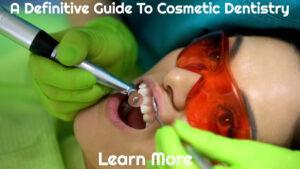 There are a few distinctions between Invisalign and braces. Clear aligners are removable, clear retainers. Braces, on the other hand, are made up of metal brackets that are affixed to your teeth and use wires to force your smile into alignment. Invisalign users should expect a shorter treatment time—typically six to 18 months—as opposed to two or more years for braces. In general, the costs of both solutions are comparable.
There are a few distinctions between Invisalign and braces. Clear aligners are removable, clear retainers. Braces, on the other hand, are made up of metal brackets that are affixed to your teeth and use wires to force your smile into alignment. Invisalign users should expect a shorter treatment time—typically six to 18 months—as opposed to two or more years for braces. In general, the costs of both solutions are comparable.For Who is Invisalign Suitable?
Orthodontists recommend Invisalign for patients who have crowding or misalignment. Orthodontists can also help with minor to moderate biting problems. Individuals looking for discretion, who are self-disciplined enough to wear the retainers consistently, and who are willing to have their smiles changed for goodwill find this a great option. Teens are good candidates for Invisalign since their permanent teeth have all grown in yet their teeth are still easily moved.
What is the Invisalign Process?
Invisalign employs technology to build a personalised treatment plan for your individual teeth. Manufacturers will create a series of retainers after the initial intake. Your orthodontist will advise you on how frequently to exchange retainers, but most orthodontists change them every one to two weeks. Throughout your treatment, the orthodontist will keep track of your progress. The aligners will then be removed so that you can eat, drink, brush and floss your teeth, and clean the retainers. You must wear a transparent aligner to bed at the end of your therapy. Many people will need to use them for the rest of their life to keep their teeth properly aligned.
How to Clean Aligners?
Throughout treatment, it is critical to take appropriate care of your aligners. Cool water can be used to clean them. Hot or warm water may deform them and cause them to deteriorate. Brush your retainers gently with a fine bristle brush. It is not advisable to use toothpaste or other abrasive items. To clean dental appliances, use a neutral soap or paste. Anyone can buy various kits, which include everything needed to maintain them fresh every day.
Congratulations on your decision to have your teeth realigned. It’s a good feeling to be confident in your smile. As you begin your road to a straighter smile, ask your orthodontist any further questions you may have.
Brought To You By: https://www.starbritedentalrockville.com/invisalign-rockville-md
The post Everything You Need To Know About Invisalign Aligners appeared first on https://arquiaca.org
The post Everything You Need To Know About Invisalign Aligners appeared first on https://wookicentral.com
The post Everything You Need To Know About Invisalign Aligners appeared first on https://gqcentral.co.uk
-

Invaluable Facts About Emergency Dental Services
Emergency Dental Services – Facts You Need To Know
Dentists must respond to unexpected dental emergencies as soon as possible in order to save the patient’s life. These unanticipated situations can have life-threatening repercussions for some people, particularly if the damaged tooth is a wisdom tooth. Dental professionals can help persons suffering from toothaches, swollen gums, and dislodged teeth avoid lasting damage and relieve extreme discomfort.
Dental patients must determine the underlying cause of the current problem. The doctor then conducts a comprehensive assessment of the problematic area before the dentist provides treatments. Patients can understand when to schedule an after-hours visit by examining details about a dental emergency.
What Constitutes a Dental Emergency?
A dental emergency is defined as a sudden dental issue that causes extreme pain or discomfort and cannot be treated until the sufferer can make an appointment. If these unexpected situations arise while the office is closed, most dental experts will provide an after-hours phone number.
However, if a client needs assistance when the office is open, the staff can accommodate the individual into the existing timetable. Patients receive rapid care when it is most required with emergency dentistry.
How to Know If It’s a Dental Emergency
The first indicator of a dental emergency is significant pain and discomfort that over-the-counter pain relievers cannot alleviate. Following that, if the person has a dislodged tooth, the tooth must be reset within the first 24-hours by a dental specialist. Finally, if a person’s teeth are loose, there are signs of an infection, or he or she is bleeding around a tooth or from the gums, the situation necessitates quick emergency dentistry.
When Should I Visit an Emergency Room?
Some dental crises are life-threatening, and if the dental office is closed, the client must travel to the emergency hospital. Wisdom teeth can become impacted or diseased at any time. An infection has the potential to spread and enter the bloodstream.
When an infection enters the bloodstream, the person must begin antibiotics immediately and may require IV drugs from a hospital. The hospital personnel can contact the patient’s dentist and advise him or her of the infection.
What Doesn’t Qualify As A Dental Emergency?
If a person can handle the pain and discomfort using over-the-counter pain relievers, the condition is not considered an emergency. Severe toothaches, on the other hand, frequently involve an exposed nerve and necessitate the use of prescription drugs.
The severity of pain determines whether or not a visit to the dentist is required. If the tooth is not in danger, there is no infection, and the situation will not result in permanent loss, the patient can contact the dentist during regular business hours and schedule an appointment.
Typical Dental Emergencies
Unexplained toothaches, swelling or bleeding gums, swollen jaws or mouth, exposed nerves, diseased wisdom teeth, and dislodged teeth are the most common dental emergencies. Other painful dental emergencies include missing fillings, cracked dental crowns, and food lodged between the teeth. Each of these disorders is uncomfortable and may jeopardise the individual’s oral health.
How to Avoid Potential Emergencies
By doing frequent dental examinations, a dental practitioner can identify problem areas that lead to infections, tooth destruction, and exposed nerves. If the patient has a root canal, the dentist can place a crown to provide further protection. A mouthguard can be worn by anyone who participates in sports to avoid dislodged or damaged teeth. People who grind their teeth at night might minimise tooth damage and jaw pain by using a mouthguard.
Where Can I Find an Emergency Dentist?
Most dentists provide emergency care, and there is an after-hours contact number to arrange for it. If these options are available, consumers can phone their favourite dentist to obtain emergency assistance. By asking friends and relatives, a person can learn more about area dentists and the experiences those people have had in the past. Online reviews can also provide residents with a plethora of information.
What You Should Do Prior to Your Emergency Dental Appointment
A cool compress can be used to relieve swelling and discomfort. To avoid displacement of the gum tissue on the tooth, they must place the loosened tooth in milk and avoid cleaning it. To avoid drug interactions, the client must disclose any drugs he or she takes on a daily basis with the dentist.
Dental emergencies can occur without warning, and the individual will need to contact a dental specialist for immediate assistance. The dentist must know if the patient is in extreme pain, has lost a tooth, is experiencing bleeding or swelling, and if there is an infection before assessing if the issue is an emergency.
Each of the illnesses necessitates immediate treatment to alleviate pain and discomfort. The dentist does a thorough examination to determine the root of the problem and provide treatment as soon as possible. Individuals can learn what to expect by reviewing emergency dental services.
Brought To You By: https://www.garlanddavisdds.com/
The post Invaluable Facts About Emergency Dental Services appeared first on https://arquiaca.org
The post Invaluable Facts About Emergency Dental Services appeared first on https://wookicentral.com
The post Invaluable Facts About Emergency Dental Services appeared first on https://gqcentral.co.uk

